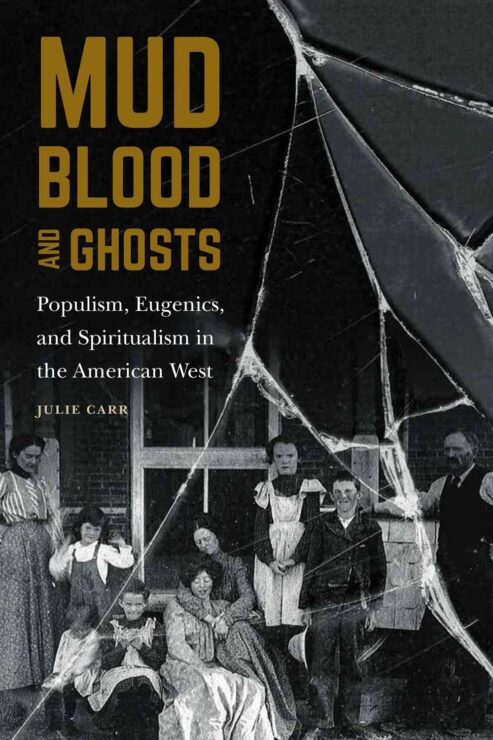
5:00 PM Pacific – Program
An archive survives to be revived. The archive as a limit, a thing in a box, is always also an opening. It opens on losses sustained, harms inflicted, the tenacity of survival, and on the persistence of lineages both proud and shameful. But what is it to approach an archive, to unlock the cabinet, lift the top off the box, to begin to read? It is to invite a haunting, which nevertheless begins long before we open any books. And to invite the ghosts into the open, one must be ready to hear what they teach.
Reading from her new book, Mud, Blood, and Ghosts, and screening a short film by Carolina Ebeid that engages archival images, Julie Carr will tell the story of her great-grandfather, Omer Madison Kem, a settler in Nebraska, a founding member of the Populist Party, a three-term Congressman, a practicing spiritualist, and an avid eugenicist. Kem’s final years were spent in Oregon where he owned a power company and became a passionate advocate for the forced sterilization of all those he came to believe were “unfit” to breed. This talk will focus on the ties between the American eugenics movement, American populism, and the American West.
A virtual presentation by Julie Carr, author and professor of English, University of Colorado, Boulder
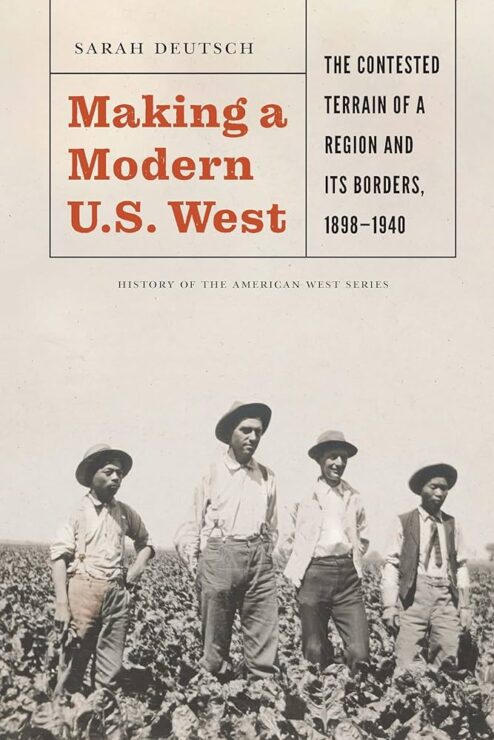
5:00 PM Pacific – Program
A central theme of Making a Modern U.S. West by Sarah Deutsch is the question of what would constitute a modern U.S. and whose vision would define the West and the nation. Modernity for some meant corporate consolidation, capital intensive agriculture, white supremacy, male-headed families and private individual land-holding. For others, modernity could include racial mixing, transnational mobility, economic democracy, and collective ownership of land. Californians ran the full spectrum of these ideas—they fought over redwoods and irrigation, they speculated on land and oil, they fought over the border and who belonged on which side, and even over who should get a say in all those things—and in doing so, they helped define modernity for the region and the nation.
This presentation will address some of those issues as well as how the author tried to corral these unwieldy decades into a single volume.
A virtual presentation by Sarah Deutsch, author and professor of history, Duke University
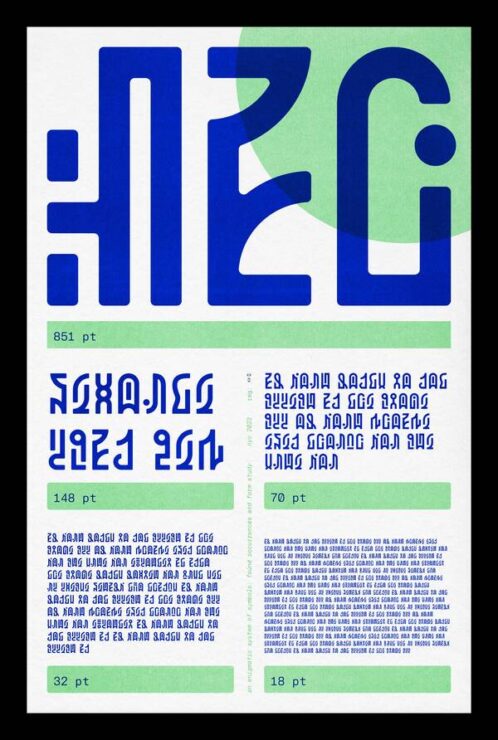
6:30 PM Pacific – Program
ArtCenter College of Design | South Campus, 1111 South Arroyo Parkway | 5th Floor Lobby | Pasadena, California 91105
Join guest librarian Alex Balgiu (Designing Writing), alongside Rachel Julius and Bob Dirig (ArtCenter Library) for an immersive and tactile happening where attendees will interact directly with the diverse array of books and printed materials on display.
** Co-presented by Hoffmitz Milken Center for Typography and ArtCenter Graphic Design
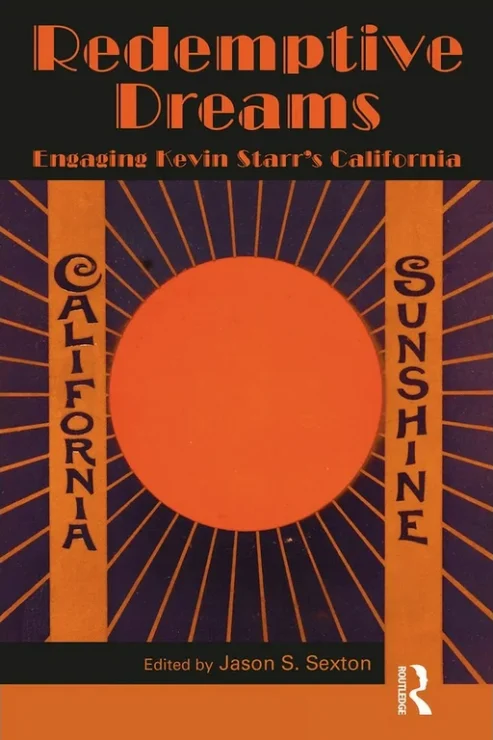
5:30 PM Pacific – Reception
6:00 PM Pacific – Program
An essential piece in California Studies, Redemptive Dreams: Engaging Kevin Starr’s California offers the first critical engagement with the vision of California’s most ambitious interpreter. While Starr’s multifaceted and polymathic vision of California offered a unique gaze—synthesizing central features, big themes, and incredible problems with the propitious golden dream—his eight-volume California Dream series, along with several other books and thousands of published articles and essays, often puzzled historians and other scholars. Historians in the contemporary school of critical historiography often found Starr’s narrative approach—seeking to tell the internal drama of the California story—to be less attuned to the most important work happening in the field. Such a perspective fails to acknowledge key developments in historical subfields like Black and African American Studies, Chicana/o/x Studies, Asian Studies, Native Studies, and others that draw from the narrative in their critical work and how this relates to Starr’s contribution. Along with being a major figure in California institutional life, with literary output spanning genres, it is through the lens of his lived experience as a devout Catholic that this critical sociological perspective sheds new light on his project. With contributions from sociology, history, and theology, akin to investigations appearing in Theology and California: Theological Refractions on California’s Culture (Routledge), Redemptive Dreams offers interdisciplinary perspectives that highlight key features inherent in interdisciplinary theological reflection on place and illuminates these diverse disciplinary discourses as they appear in Starr’s articulation of the California Dream.
An in-person and virtual presentation by Jason S. Sexton, author and professor of sociology at University of California, Los Angeles
Click here to REGISTER to attend in-person at The Book Club of California
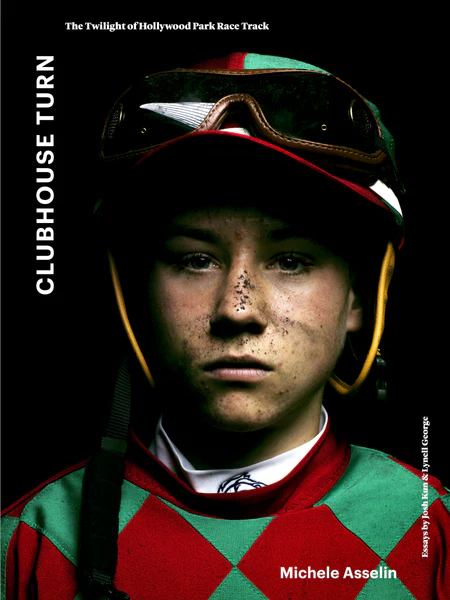
5:30 PM Pacific – Reception
6:00 PM Pacific – Program
Pasadena Heritage | 160 N Oakland Avenue | Pasadena, California 91101
Constructed on a swampy landmass in Inglewood, Hollywood Park Racetrack was envisioned by entertainment moguls. Inglewood welcomed the executives, who had been excluded from other venues due to prejudice. The first turn on a racetrack immediately after the finish line, known as the clubhouse turn, is considered to be the best vantage point to see the finish of the race and is therefore where the privileged sit. Built with the values of a bygone era and the mythologies of the track, Hollywood Park was a place where the privileged and disenfranchised co-mingled; it epitomized the social complexity of a place of fantasy and dreams, winning and losing. Clubhouse Turn strives to produce a pictorial record of the inevitable amalgamation of imagined and actual realities, environment and circumstance. By grouping the images into framed constructions, the work functions like memory—consolidating, diffusing, and reorganizing what has now disappeared.
An in-person presentation by Michele Asselin, editorial photographer and author
Click here to REGISTER to attend in-person at Pasadena Heritage
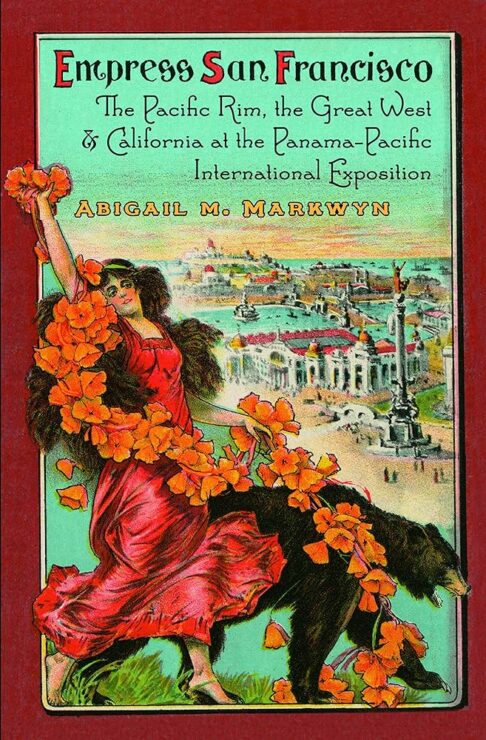
5:30 PM Pacific – Reception
6:00 PM Pacific – Program
When the more than 18 million visitors poured into the Panama-Pacific International Exposition (PPIE) in San Francisco in 1915, they encountered a vision of the world born out of San Francisco’s particular local political and social climate. By seeking to please various constituent groups ranging from the government of Japan to local labor unions and neighborhood associations, fair organizers generated heated debate and conflict about who and what represented San Francisco, California, and the United States at the world’s fair. The PPIE encapsulated the social and political tensions and conflicts of pre–World War I California and presaged the emergence of San Francisco as a cosmopolitan cultural and economic center of the Pacific Rim.
Empress San Francisco offers a fresh examination of this, one of the largest and most influential world’s fairs, by considering the local social and political climate of Progressive Era San Francisco. Focusing on the influence exerted by women, Asians and Asian Americans, and working-class labor unions, among others, Abigail M. Markwyn offers a unique analysis both of this world’s fair and the social construction of pre–World War I America and the West.
An in-person and virtual presentation by Abigail M. Markwyn, author and professor of history at Carroll University
Click here to REGISTER to attend in-person at The Book Club of California
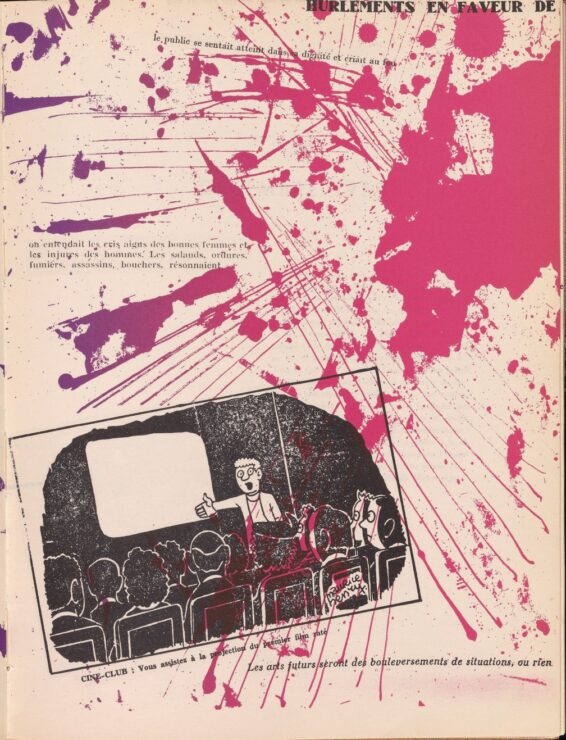
5:30 PM Pacific – Reception
6:00 PM Pacific – Exhibition Opening and Remarks
Active between 1957 and 1972, The Situationist International (S.I.) was a revolutionary alliance of artists, intellectuals, architects and political theorists that is hailed as the “last avant-garde” of the 20th century. One of the organization’s core concepts is that of détournement, which can be understood as the subversion of established cultural commodities as a means of propaganda. This exhibition presents numerous examples of this innovative practice, from artist books to comic strips, and from leaflets to maps. In doing so, it also attempts to retrace the history of a movement that maintained an ambiguous relationship with their own material productions.
Exhibition opening and remarks by Mehdi El Hajoui, private collector.
Click here to REGISTER to attend in-person at The Book Club of California
5:30 PM Pacific – Reception
6:00 PM Pacific – Program
Approximately twenty-five printed books and ten manuscripts have been located from before 1640 which bear the florid inscription: “Will and Walke aright. Will: Walker,” usually appearing on the title-page of a printed book, or on the first or last leaf of a manuscript.
This talk will attempt to identify the author of the inscription and the owner of the books and manuscripts in new detail; to reconstruct William Walker’s small but unquestionably significant personal library; and to trace the history of the “best” manuscript of Sir Philip Sidney’s “Old Arcadia.”
An in-person and virtual presentation by Alan H. Nelson, Professor Emeritus, Department of English, University of California, Berkeley
** Co-presented and co-hosted by The American Trust for the British Library and The Bibliographical Society of America **
5:30 PM Pacific – Reception
6:00 PM Pacific – Program
Letterpress print your own broadside on the Book Club’s Colombian hand press with Li Jiang, Lemoncheese Press.
A limited number of broadsides will be printed. Registration required.
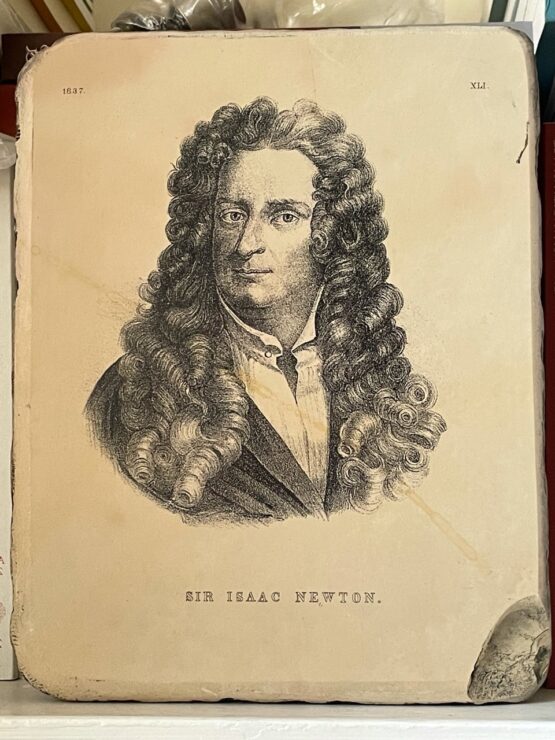
5:30 PM Pacific – Reception
6:00 PM Pacific – Program
The Cambridge University Library recently purchased a previously unknown notebook kept by Isaac Newton’s chamber-fellow, John Wickins, in the years around 1680. It is possible to identify the contents of the notebook as being previously unknown compositions and correspondence of Isaac Newton, which shed light on many aspects of his work and his engagement with the University in which he was employed.
As part of the preparation of an edition of the notebook, the evidence that it provides for Newton’s reading habits has been extensively investigated and this talk will describe that evidence and the conclusions that can be drawn from it and from other sources to trace changes in Newton’s habits of study at a critical juncture in the development of his thought.
An in-person and virtual presentation by Scott Mandelbrote, Fellow, Director of Studies in History, and Perne and Ward Librarian, at Peterhouse, University of Cambridge, UK. He is also the editorial director of the Newton Project.
** Co-presented and co-hosted by The American Trust for the British Library and The Bibliographical Society of America **
5:30 PM Pacific – Reception
6:00 PM Pacific – Program
The Blinn House | 160 N Oakland Avenue | Pasadena, California 91101
The Orange and the Dream of California takes a lively, literary, and extraordinarily visual look at the symbiotic and highly symbolic relationship between the Golden State and its “golden apple.” Untold thousands of adventurers and health-seekers came West in the late nineteenth and early twentieth century, lured by postcards of orange blossoms juxtaposed to snow-capped mountains. Orange juice became the way to start every day after Sunkist spread the word that drinking a California orange was not only as sweet and delicious as eating one, but held the promise to a healthy life. The orange became a symbol of everything California promised, and California became the center of the Orange Empire.
In 176 full-color pages and more than 250 images, author David Boulé shares the absorbing story of the orange and its impact on the culture—historic, financial, artistic, and even romantic—of California. And, he tells the tale of citriculture, the complex, captivating, and controversial world of growing the orange.
An in-person presentation by David Boulé, author and historian
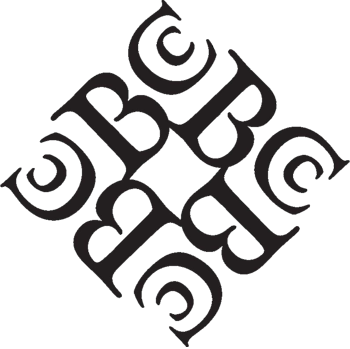




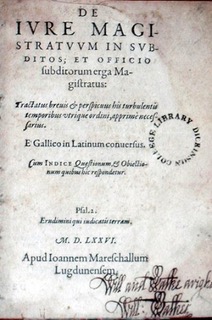
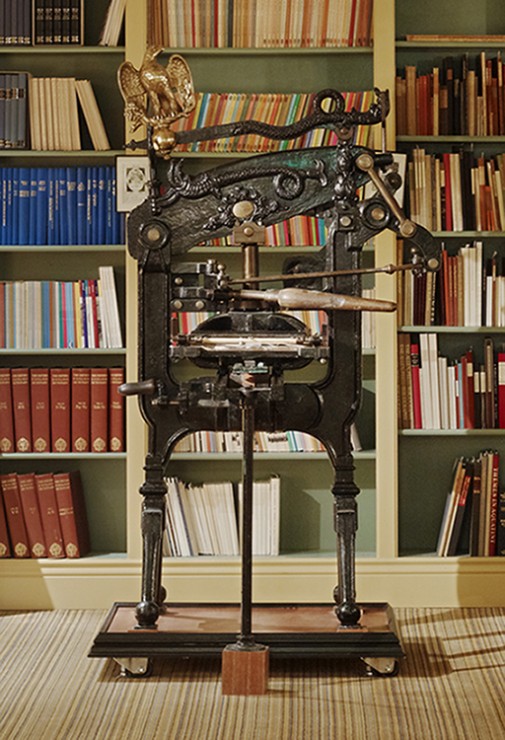
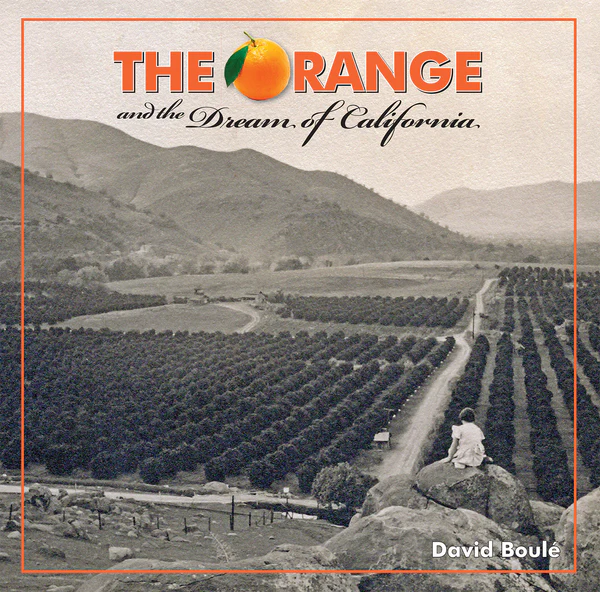


 312 Sutter Street, Suite 500 • San Francisco, California 94108 • t. 415 781 7532 •
312 Sutter Street, Suite 500 • San Francisco, California 94108 • t. 415 781 7532 • 